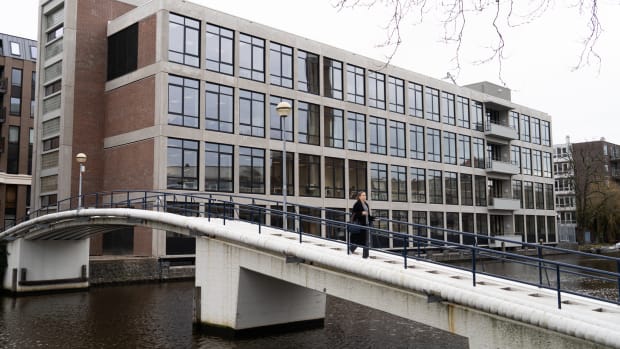
Lukas van de Coevering | Pick one box and stay in it, please
For many of us students, choosing the right degree program in the Netherlands was like playing a game of darts with our eyes closed, says our Lukas van de Coevering in his farewell column. “You don't know what courses actually teach what and if you chose wrong, the only thing you can do is wait and throw another dart into the darkness.”
The idea of changing direction midway through a university program in the Netherlands is structurally impossible. You just have to start from square one. Once you’ve picked your field, at the ripe age of 17 or 18, that’s it. You’re locked in for three years. Congratulations on choosing your intellectual soulmate before you've even moved out of the house.
Rigidity
As someone coming from a more flexible academic culture, this rigidity feels… odd. In the U.S. for example, it’s normal (expected, even) to change your major. Twice even. You can mix psychology with computer science, or journalism with environmental studies. You can spend a year figuring it out. Here, you blink and suddenly you’re two months deep in an econometrics program you chose because you liked high school math and dad said it was a great option.
It’s not that the Dutch system is without merit. It’s efficient (but we might have less "forever students" if they could explore their interests academically). It’s affordable. It saves time. But it assumes a level of self-knowledge most of us simply don’t have when we enter university. High school teaches you how to pass exams, not how to understand a discipline and certainly not whether you want to commit to it for the foreseeable future.
The bigger issue is that the real world doesn’t function in isolation. Most jobs, especially the ones that didn’t exist ten years ago, don’t require single-subject expertise. They require a mix: communication and coding, data and ethics, art and AI. We need more people who can think across disciplines, not fewer.
Liberal Arts College
But how can we develop that range if our systems don’t let us explore? It’s not about turning every university into a liberal arts college. It’s about building in room to rethink, to redirect, to combine. To admit that students are people in progress, not pre-installed packages.
Picking a study shouldn’t feel like signing a three-year phone contract you can’t break. University should be a place where you grow into your interests, not a place where you hope you guessed right.
This is the last column of Lukas van de Coevering.

